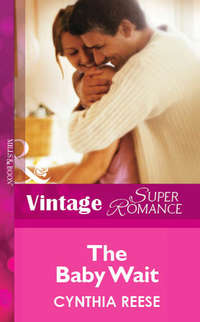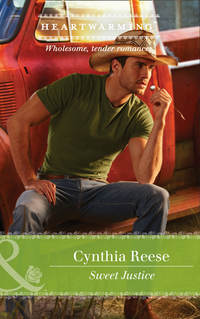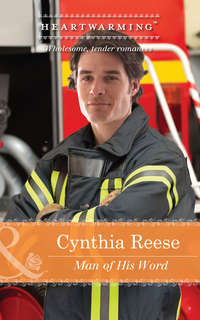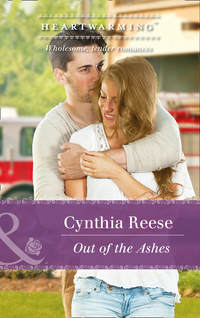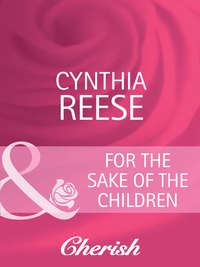
Полная версия
Secret Santa
“No, no, we’re good,” Charli assured him. “I think, anyway. He had just enough life insurance to pay off their house and buy an annuity for Mom. To tell you the truth, I haven’t really dug into the practice’s books yet. But I’m sure we’ll be fine. I’m not looking to add any debt to my student loans. No, what I came in here for was to access the safe deposit box. Jed Cannady—he’s the lawyer who’s helping us with probate—suggested I come and check it out.”
“Well! That’s all? My gracious. Such a little thing.” He didn’t take his eyes off her, but snapped his fingers. “Nora! Charli here needs to get into her safe deposit box. Why don’t you help her with that, all right?”
Nora Evers, who’d been at the bank since Charli was a little girl, scurried up to her, obedient as any dog Lige might own. She darted her eyes toward her boss, then at Charli. “Why, sure, why don’t you come with me?”
Alone, the woman greeted her with genuine sympathy. Several other bank staffers took a moment to share their condolences. Apparently, like practically everywhere else in town, her dad had them thoroughly charmed. He could do that. He might have been arrogant and peremptory at times with his family and with many of his patients, but he always won them back with his charm.
“Jed brought over a letter of testamentary this morning since you weren’t a signatory on the box,” Nora told her. “As the executor of estate, he authorized you as the signatory, but of course he’ll have access, too. You inherited the practice, so he figured the box had to do with it. It was part of your dad’s business account. You have the keys?”
“Yes, Jed had a spare one, just in case.”
She guided Charli to the safe deposit area, negotiated the whole business of the keys and manhandling the box to a carrel and said, “Now, just let me know if I can help you.”
With that, she left Charli alone with the closed box.
For a long while, Charli wasn’t sure she was going to have the courage to open it. Did it really need to be opened right now? The only sound in the little room was the insistent buzzing of the fluorescent light fixture above her. Everything else seemed muted by the thick carpeting and the rows and rows of safe deposit boxes behind her. A portrait of one of the bank’s founding fathers—one of Lige’s kin, she knew—glowered down at her.
Looking at the box, Charli couldn’t think what it might contain. The will had been with Jed, as were all her dad’s important papers. If her dad had felt the need to give a key to Jed for safekeeping, maybe the box contained something important.
Jed said the box might have computer backups or something else I need for the practice, she told herself. Or maybe it’s empty.
Her hand felt heavy as she flipped back the lid to reveal the interior jammed tight with a creased manila envelope.
It was mustard yellow, worn at the corners, having long ago lost its crispness. Charli had to tug at it to pull it free from the confines of the box. The envelope itself had some heft to it. On the back, she could see that her father had several times taped the envelope with his initials scrawled across the tape.
Her heart twisted at the sight of his familiar handwriting. She’d seen those initials many times, and seeing them again made her realize afresh she’d never stand beside him again while he scratched out patient notes.
What could be so important that her dad would want to be sure no one else had opened this envelope? Charli worked a finger under an edge of the tape and pulled it free.
When she turned the manila envelope upside down, thick packets of cash tumbled out.
Ten bundles of hundreds, with bands saying ten thousand dollars on them, landed in a heap on the highly polished wood of the bank table, along with another couple of bundles of fifties and three bundles of twenties, one of them simply rubber-banded.
A hundred grand, easy. In cash.
Charli’s mind did the calculations but couldn’t process the answer to the bigger question.
Where on earth had her father got a hundred thousand dollars in cash? And why was it stuck in a safe deposit box?
* * *
ON HIS DAILY WALK to the bank, Neil spied Charli huddled on a downtown bench and did a double take. Though the day was deceptively warm for the season, Charli hunched over as though a stiff north wind was cutting through her.
She looks plain miserable.
Maybe she’d rebuff his attempts to help her like she had the night before, but he couldn’t stand to see someone in the depths of so much grief.
Neil eased down beside her on the bench. For a moment, Charli didn’t even notice him. Then she did. He could see emotions swamp her face and felt like a foolish optimist that he could detect the flash of pleasure that disappeared in the wake of irritation and grief.
“Is this an attempt to be alone again? Am I horning in?” he asked.
She shrugged her shoulders. “I don’t think I can be alone in this town. But it’s a free country.”
It wasn’t the enthusiastic welcome he might have hoped for, but at least she didn’t tell him to beat it. He pressed his luck and remained beside her.
“Want to talk about it?”
He’d tried to keep his voice neutral, like he’d remembered his aunt and his father had done with him in the days following his mother’s death. It had been hard for him to open up. He’d blamed himself because she’d been killed in a car wreck while on a run for Christmas goodie bags for his first-grade class.
It had taken weeks for his aunt to dig that little tidbit out of him, but when she’d folded him in her arms and assured him that it wasn’t his fault, his healing had really begun.
Now he saw Charli’s lower lip quiver. Tears welled up in her eyes. She lifted her chin and managed to school her face into submission. He didn’t dare reach for her hand, though that seemed to be the thing that would have helped him the most. He just waited.
His wait paid off. In a halting voice, she said, “I don’t think I really knew my dad at all.”
“Because of what...what I showed you last night?”
She started to shake her head, but stopped. “I guess.”
Neil didn’t believe her—not totally. Charli had been angry with him last night, but only after she thought he’d been bossing her around. Maybe he had—or at least he could see how she could take it that way. Before that, she had been awestruck, not sad, about her father.
No, Neil was certain her confession had to do with something else.
He wasn’t quite sure what to say. “I guess it is kind of confusing to have one idea of who your father is while other people knew a different side. If it makes a difference, he was really proud of you,” Neil said. “He was excited that you were joining his practice.”
Her face lit up. “Was he? Really? I mean, I know he told me, but I figured it was—” Charli broke off.
“Yeah. Really. He’d already had me promise to do a big feature on you. That sort of got derailed with your upside-down schedule when you first got here. I wish you could have heard the way he talked about you. I was kind of intimidated—figured you’d be a spoiled-brat arrogant doctor with her nose up in the air after all that advance billing.”
“Hopefully—aside from last night—I haven’t lived up to that, huh?” she said, not looking at him.
“No. I like you. I like the way you stood up for me that night in the E.R. Your dad could be, well, hard to sway once he got his mind fixed about something.”
Charli’s laugh was rueful. “I had a lot of practice standing up to him. He didn’t want me to be a doctor. Did you know that?”
“He told me that. He said he’d tried to talk you out of the medical field altogether—said you got so mad with him you refused to let him pay for medical school.”
“Ah, yes. And I have a huge mountain of student loans to show for my stubbornness. He offered to help me out, but he really wasn’t in a position—” Her openness came to an abrupt stop, with her mouth clamping shut to bite off her words.
Neil took the hint and didn’t press her. “I just paid off my last student loan. I can’t imagine what yours must be like.”
“A nightmare. But it’s doable. After all, I had something handed to me that few family practice newbies get—Dad left me his practice.” Her shoulders slumped at her last words, and Neil speculated the reality of such a bittersweet gift was hard to accept.
“But you’d rather have your dad.”
“Yeah. Yeah, I would.”
“Well, his patients will love you, just like they loved him—and he loved them.”
Charli nodded, doubt furrowing her brow. “Maybe. It’s all changed. I’ve been gone too long. I can’t remember everybody.”
“Well, it just so happens I have the cure for that,” he told her. “Your mom called me earlier today to thank me for my article about your dad, and we were talking about everything your dad was involved in. She reminded me about how he always participated in the community Christmas cantata, and she suggested I invite you to fill his place. I know, I know, she said you’re an alto and certainly not the tenor he was, but you know what I mean. They’d be thrilled to have you. We start rehearsals tonight.”
Charli put a hand to her face. “Oh,” she said, the word a groan. “My mother.”
“What? Did I make a hash of things? Did I get it wrong?” Neil asked. “She said you’d participated when you were in high school and really enjoyed it.”
Charli groaned again. “Neil, let’s face it. I’m just so not ready for anything to do with Christmas. I know you’re the holiday’s biggest cheerleader, but...I just...I just can’t.” Her voice broke. “My mother is trying to get you to babysit me, and I don’t need babysitting. Honestly. I need to be working.” She sprang up from the seat. “Thanks, but no thanks. I’ve got a lot on my plate now. Okay?”
With that, Charli took off down the sidewalk, her businesslike stride full of purpose and showing none of the vulnerability he’d witnessed just a few moments before.
CHAPTER FIVE
FOR ALL HER craving of silence and solitude, even after that first tough day back at the office, Charli found herself dreading going home.
The night was quickly darkening as she left her father’s practice. Hers, now, she reminded herself. Instead of turning toward home, she drove back to the downtown area and found herself cruising by shabby storefronts that told of a dying town.
Now that Charli’d had time to think, all the cash in that safe deposit box weighed on her mind. And she didn’t like where her thoughts were headed.
She knew of her dad’s financial struggles over the years. Not only was he a small-town family-practice guy—that in itself was not the road to fabulous riches—but he’d been saddled with debts from her mother’s shopping sprees and counseling over the years. Apparently, from what Lige had said, her dad had continued the practice of borrowing money to bail the practice out of the red.
But if he’d had a hundred grand in a safe deposit box, why had he needed to borrow money at all? Why hadn’t he used it? And where had the money come from if he’d been paying off the second mortgage on her parents’ home and a mortgage against the practice?
These same questions had robbed her of sleep the night before. She’d called her mother and hinted around about whether her dad had kept a secret slush fund, but her mom had seemed absolutely clueless. No, the only thing to do was to ask either Jed Cannady, the family’s lawyer, or Floyd Lewis, the CPA who’d done their taxes and helped with the practice’s books.
She’d get the truth then.
At the community center, cars filled the parking lot and crowded along the grass shoulders of the driveway. Lights blazed in the big front windows. At first Charli couldn’t figure what could be going on. It was a weeknight and the Brevis supper hour.
Then it occurred to her—the community cantata. Neil had told her about it, invited her. She couldn’t imagine her dad actually singing in the choir, though he was a good singer. He just wasn’t one to take direction from anyone, except maybe her mother.
On a whim, she parked the car and made the hike across the grass to the front steps of the center. The lobby was filled with people crowding around a long table laden with sandwiches and snacks. She hadn’t expected this—she’d hoped to slip in the back to hear them rehearse. Charli turned to leave.
“Charli Prescott!”
She stopped. Flora Smith, the bubbly choir director Charli recalled from cantatas past, strode up to her. “Oh, Charli! I’m definitely in need of another good alto! Neil was telling me—”
Now Neil slid in beside the woman and smoothly interjected, “How interested you were about your father’s participation. I did tell you Charli had said no.”
“Oh, yes, he was so wonderful!” Flora trilled. “And of course we have room for you this year! Even if you did miss last night’s first rehearsal. If you’re worried about being rusty, don’t—we’ll have you shaped up in no time!”
Charli’s feet itched to take her out of the crowded room. She opened her mouth to make excuses, but didn’t know what to say. The last thing she wanted to do was join the community choir and sing Christmas music. She opened her mouth to politely and firmly say no, knowing that would invite a flood of protests from Flora.
Neil interjected. “Maybe Charli should watch a bit of the rehearsal before committing herself—you know, Flora, it is a big commitment.”
Flora didn’t look happy about it, but at that moment, someone called her attention away. She nodded and hurried off.
“Did I get you off the hook?” Neil asked.
Charli looked past Neil in search of Flora. “Where’d she go? I need to tell her definitely no, or otherwise it will be like water torture.”
“Stay. Watch us. You might change your mind.”
She glared at him. “I won’t.”
“So...what are you doing here, then?” he asked.
Good question, she thought. His pointed question served to cool her irritation. What am I doing here?
“Just curious.” After all her protests that she wanted to be alone, Charli didn’t want to admit that an empty house wasn’t something she was looking forward to.
Behind her came a clatter of noise, and Neil put a hand on her arm to steer her away from someone loaded down with more trays of food. He pulled her into a quiet alcove that served as a coat-check area.
A tug against her throat halted her. She turned and realized that the end of her scarf had snagged on a nail at the doorjamb. “Wait—my scarf, it’s caught....”
Neil bent down and freed the fluffy pink knitted ruffles from the head of the nail. “There you go,” he said, lightly dropping it back in place over her shoulder. “That’s some kind of scarf. I don’t think I’ve seen one like it before.”
Charli picked up the end of the scarf and stroked the kitten-soft yarn. “It’s something, isn’t it? My mom knitted it for me—she’s on a knitting frenzy since my dad...passed away. I hated not to wear it after she worked so hard to finish it. Even after all these years, she’s still trying to force me into pink ruffles.”
“You’re not the pink-ruffle type?” he asked. Now he reached over and stroked the soft knit. “Well, I think it looks nice on you. She obviously put a lot of effort into it, and I like the fact you wear it even when it’s not to your taste. Your mom—she stays busy, doesn’t she? I can’t think of a single important committee in this town that she’s not a part of.”
“So strange.” Charli closed her eyes. Her fingers continued to stroke the yarn. “I never knew either of them to be involved in much of anything, community-wise. It’s like I’m Rip van Winkle, and I’ve woken from a long sleep and come home to find everything’s different.”
She opened her eyes again and found that she’d uttered her words so softly Neil had been forced to lean in to understand them. He was close enough for her to see the stubble on his cheek, to breathe in his scent. Close enough to kiss.
He must have heard her quick intake of breath at his nearness, because he moved away a half step.
“Sorry—the noise in the background. Better?” Neil asked.
Oh, no. It wasn’t better at all. Had her mother’s matchmaking put ideas in her head? She realized with startling clarity that she’d wanted to see Neil tonight—maybe not talk to him, but just see him, hear him sing. She’d wanted to know what he sounded like, whether he was a clear-voiced tenor or a strong bass.
But how to say that without coming across like a blithering idiot? “You asked me why I’d come tonight. I guess you made it sound interesting,” she finally said.
“Good. I’m really glad to see you. It seems like I keep ticking you off, and I don’t mean to do that.” He leaned against the doorjamb, giving off that I’ve-got-all-the-time-in-the-world vibe Charli found refreshing. The men she’d known—in college, in med school, her fellow residents—had never been so patient.
“If you’ll give me a pass on all things Christmas, I expect we’ll get along swimmingly,” she said. “I’m not usually a Scrooge....”
“I know.” He nodded and grinned. “It’s the timing. I get it. I guess I’m like Flora—I try to convert the world to my own obsessions.”
She liked his self-deprecation. Again, this was like none of the guys she’d been around for a while. They seemed to take every opportunity to remind her that while she was planning on going into the lowly family-practice field, they would be elbow-deep in neurosurgery or cardiothoracic surgery or trauma or oncology.
Here, Neil had no such pretensions, and she liked the way he seemed at ease with himself.
It soothed her—and her anxiety about her father’s money, and what that amount of cash could mean. She felt certain, all in a moment, that she could tell the man in front of her anything and he’d understand it, help her through it.
It was on the tip of her tongue to blurt out about the money and ask Neil for his opinion. But then the lights dimmed twice, and she recalled it was Flora’s signal to get back to the grindstone.
“Gotta go,” he told Charli. “Why not stay and watch?”
She did. As she slid into one of the old wooden seats in the back of the auditorium, she discovered Neil’s voice to be a strong, clear tenor that nailed a solo in an old English Christmas carol.
He probably had sung right beside her dad the Christmas before. She hadn’t come home for Christmas last year. She would have if she’d known that Christmas was to be her father’s last one. It was a regret she knew she’d have for the rest of her life.
Still, as Charli watched Neil sing with the rest of the choir, she was glad of the interruption that had prevented her from spilling the beans about the money. What on earth had made her think telling Neil about the money was a good idea? What could he do about it? And he owned and edited the newspaper. Would he feel compelled to report her discovery before she had a chance to figure things out?
The more she thought about it, the more convinced she became. That amount of money couldn’t mean anything good.
* * *
THE NEXT MORNING, Charli awoke gritty-eyed and groggy. Thoughts of the money and Neil had chased themselves around in her head until the small hours of the morning. When she faced herself in the mirror, seeing the bags under her eyes, she knew something had to give.
She called Marvela at the office and told her she’d be a half hour late coming in. “I’ve got a stop I need to make first,” she told her.
That stop was at Floyd Lewis’s house. Floyd had been her dad’s CPA for years. Charli hadn’t seen a professional listing in the yellow pages for his office, so she’d rung his house and he’d told her he’d retired three years before, but to drop in at home.
When she pulled up to Floyd’s house, she saw a Corolla parked at the curb—a Corolla that looked suspiciously like Neil Bailey’s. Her heart went into overdrive as two emotions battled for primacy—a little jolt of joy at seeing Neil again, and frustration that she wouldn’t have a chance to talk to Floyd alone.
Maybe it’s not Neil. There have got to be a dozen cars in Brevis that look like his. She soldiered on, up the steep little hill of grass between the curb and the sidewalk. Good thing she’d ditched her heels in favor of flats today.
But, no, it was Neil. There he was, struggling to get out of his car one-handed, diving back in for a camera he slung around his neck and the skinny reporter’s notebook he jammed into his back pocket.
“Fancy running into you. I figured you’d be neck-deep in office hours, or at the hospital,” Neil said by way of greeting. “I see you’re sporting another one of those scarves. Your mom’s handiwork?”
Charli’s hand went to her scarf du jour, a frilly confection of aqua and black. “Yeah. Should I put in an order for you? She’s about to bury me in yarn.”
“I’m kind of a hot-natured guy—hardly ever wear a coat if I can get out of it. Maybe you should ask her to knit you a throw or something—that would take longer, right?”
She chuckled. “You might have an idea there.” Twining the scarf’s end around her fingers, she said, “You visiting Floyd?”
“Yeah. So...you here to see the chicks, too?”
“What?” Did he mean chicken chicks, or...
“The baby chickens. Floyd is raising chickens in his backyard, and he wanted me to do a story on it. He called me and said he had about a dozen hatchlings.”
“Oh.” Charli groaned. “What a lovely way to raise a good case of salmonella.”
Neil came to full alert. “Really? That’d be a good counterpoint to balance the article. Can I quote you on that?”
“No!” she said firmly. “It’s just that I treated a whole family who had an outbreak of salmonella after the mom had decided eggs from the supermarket were nasty.”
“Wow. How do you get it?”
“The salmonella? From the chickens. Wait. This is not on the record. I don’t want to come across as the new-in-town know-it-all doctor who’s out to be a spoilsport. So before I say anything, I repeat—this is off—”
“Got it. Background only, so I’ll know what to look up on Google.”
“Chickens can carry salmonella, and people can get it from handling the birds or their...poop. And there’s the whole bird-flu worry. In China, it was domestic flocks, not commercial, that really started that scare. But—” Charli could see him struggling to one-hand his reporter’s notebook out of his pocket. “I’ll send you a link, okay? If you’re careful when you raise chickens, you’re not likely to get sick. I just don’t want people to think growing your own chickens is as easy as simply throwing some chickens and scratch into your backyard.”
“Thanks. Now let’s go back and see if ol’ Floyd is a Typhoid Mary.”
At least I distracted him from wanting to know why I’m here, she thought.
In the garage, empty of a car, and full of chicken brooders, Floyd was leaning over one waist-high pen. “Hey, Neil! You made it! And Charli, too! I mean Dr. Prescott.”
“Hi, Floyd. Thanks for the flowers you sent—and the egg salad.” Suddenly her stomach churned. Had she eaten salmonella-laden homegrown eggs?
“Hatched those eggs right here! My very own flock of chickens! Can’t beat the taste, can you? Made the mayo myself, too. My mama’s recipe.”
Honestly, Charli couldn’t remember whether she’d partaken in any of the egg salad. She usually steered clear of any buffet-served dish that had mayo—homemade or otherwise—in it, for precautionary reasons.
But she was pleased to see Floyd was wearing coveralls and elbow-length gloves. At least he was taking his care seriously.
Floyd brought out a few chicks to show off, fluffy little balls of feathers he had raised in an incubator. “Got ’em in the garage because the weather’s cold. See my heat lights? Got two of ’em over each brooder in case one of ’em fails. Redundancy. That’s the way to go.”
Neil dived into the interview, bracing the notebook on the top of the brooder and scrawling notes with his good hand. Charli looked on with dismay. She wasn’t going to have time to wait out the interview for a chance to speak to Floyd alone.


